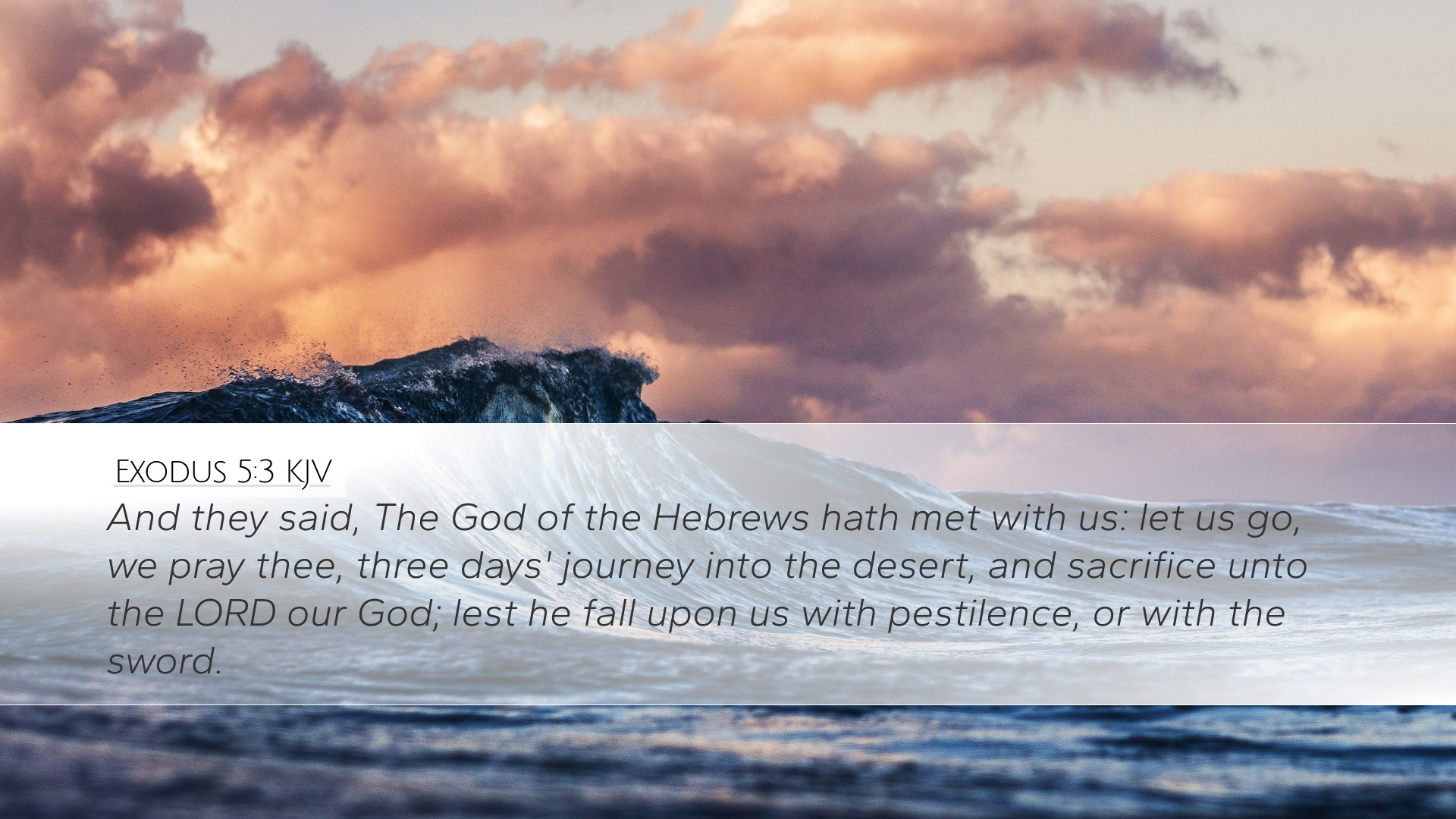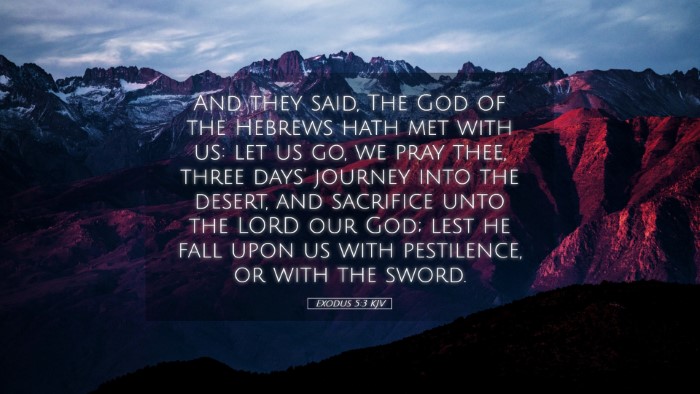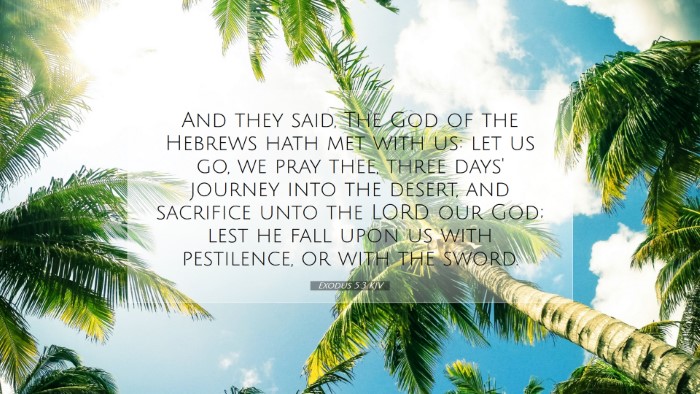Commentary on Exodus 5:3
Exodus 5:3 states: "And they said, The God of the Hebrews hath met with us:
let us go, we pray thee, three days' journey into the desert, and sacrifice unto the Lord
our God; lest he fall upon us with pestilence, or with the sword."
This verse highlights a critical moment in the narrative of Israel's deliverance from Egypt,
emphasizing the plea of Moses and Aaron before Pharaoh. The motivations and intentions behind
this proclamation provide a rich field for theological and hermeneutical exploration.
Historical Context
The context of this encounter reveals much about the socio-political landscape of ancient Egypt.
The Israelites had been subjected to harsh slavery, and this moment represents a pivotal request
for liberation, driven by divine instruction and the promise of land and freedom.
Theological Implications
Several theologians, including Matthew Henry, emphasize the importance of recognizing God’s
sovereignty and power. Henry notes that the declaration of God meeting with the Israelites
serves to remind us of divine presence even in the midst of suffering.
Divine Encounter
The phrase "the God of the Hebrews hath met with us" indicates a profound encounter with the
divine. Albert Barnes reflects on this, suggesting that this meeting was not merely social but
laden with divine authority. The acknowledgment of God here is essential; it positions the plea
directly under divine sanction.
Urgency of Commitment
The request to go "three days' journey into the desert" has been interpreted by Adam Clarke
and others as symbolic of a desire for spiritual renewal and restoration, not just physical escape.
This journey represented a temporary withdrawal from oppression to reconnect with God.
Symbolism of Sacrifice
The notion of offering sacrifices is pivotal. Clarke comments on how sacrifices in ancient
Israel not only represented atonement but also a means of divine communication. The Israelites
sought to appease God and seek His favor, a perspective echoed by Matthew Henry, who highlights
the necessity of humility before God.
The Plea for Deliverance
The urgency of their request, "lest he fall upon us with pestilence, or with the sword," brings
to light the concept of fear of divine judgment. The Israelites' understanding of their dire
circumstances shows a recognition of God’s justice. This is indicative of profound faith, even in
their oppression, reflecting the idea that they knew God was capable of delivering them.
Pharaoh’s Authority and Response
The interaction with Pharaoh introduces themes of authority and resistance to divine will.
Albert Barnes discusses Pharaoh's heart being hardened, perceiving him as a symbol of
unyielding pride and oppression. This resistance to God’s command results in a deeper narrative
of conflict between divine authority and earthly power.
Lessons for Today
For modern readers, the passage serves as a reminder of the importance of listening to God and
responding to His call for liberation, regardless of the earthly powers that may oppose.
The dialogue here can resonate through ages, symbolizing the continuous struggle against
oppression and the need for a divine intervention.
The Responses of Faith
The faith demonstrated by Moses and Aaron in approaching Pharaoh can inspire a critical
examination of our own responses to God. Are we, like them, bold in seeking God’s direction
even when faced with opposition? Matthew Henry suggests that faithful obedience frequently requires
confrontation with worldly powers and systems.
Conclusion
In summary, Exodus 5:3 encapsulates essential themes of divine providence, human suffering,
and the quest for liberation. The insights from public domain commentaries allow us to
appreciate the depth of this request and the significance of worship in the life of those
yearning for freedom. As theologians and scholars reflect on these verses, the eternal
truths embedded within serve as reminders of God’s longing for relationship and deliverance for
His people.


